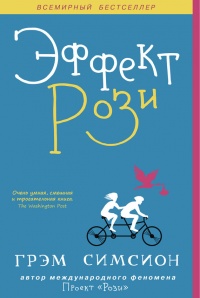Читать книгу - "Постчеловек: глоссарий - Рози Брайдотти"
Аннотация к книге "Постчеловек: глоссарий - Рози Брайдотти", которую можно читать онлайн бесплатно без регистрации
В свете новых вызовов, охватывающих современное общество, концепт человека как таковой, а также проблема его взаимодействия с искусством, точными и гуманитарными науками претерпели существенные изменения. Данный процесс, называемый «постчеловеческим состоянием», подвержен влиянию неолиберальной экономики, глобального капитализма, миграционной политики, технологического прогресса, экологических проблем, борьбы с терроризмом и т. д. «Постчеловек: глоссарий» представляет собой сборник ключевых терминов постчеловечества в контексте современного искусства и интеллектуальной сферы. Он охватывает такие широкие темы, как антропоцен, капиталоцен, экология, цифровой активизм, алгоритмическая культура и нечеловеческое. В глоссарии представлены краткие определения этих понятий и исследуются художественные, интеллектуальные и активистские подходы к решению сложных проблем «постчеловеческого состояния». Сборник помогает разобраться в изменениях, которые произошли в искусстве в контексте современных событий, связывает различные дисциплины, аудитории и критические сообщества. Рози Брайдотти (род. 1954) – философ и теоретик феминизма, ее теоретические работы повлияли на становление постгуманизма. Мария Хлавайова (род. 1971) – куратор и теоретик, основательница и художественный директор пространства BAK (Утрехт).
Sassen, S. (2016b), ‘A Massive Loss of Habitat: New Drivers for Migration’, Sociology of Development, 2(2): 204–33.
Sassen, S. (2017a), ‘Predatory Formations Dressed in Wall Street Suits and Algorithmic Math’, Science, Technology & Society, 22(1): 6–20.
Sassen, S. (2017b), ‘Is Rohingya Persecution Caused by Business Interests rather than Religion?’, Guardian, 4 January, https://www.theguardian.com/global-development-professionals-network/2017/jan/04/is-rohingya-persecution-causedby-business-interests-rather-than-religion [accessed 28 April 2017].
Sassen, S. (2017c), ‘Land Grabs are Partly to Blame for Skyrocketing Violence in Central America’, Huffington Post, 16 January, http://www.huffingtonpost.com/entry/landgrabs-central-america_us_586bf1a6e4b0eb58648abe1f [accessed 28 April 2017].
Sassen, S. and H. Koob-Sassen (2015), ‘ “A monster crawls into the city” – an urban fairytale by Saskia Sassen’, Guardian, 23 December, https://www.theguardian.com/cities/2015/dec/23/monster-city-urban-fairytale-saskia-sassen [accessed 28 April 2017].
Savage-Rumbaugh, E. S. and R. Lewin (1996), Kanzi: The Ape at the Brink of the Human Mind, New York and Chichester: Wiley.
Savat, D. (2009), ‘Deleuze’s Objectile: From Discipline to Modulation’, in M. Poster and D. Savat (eds), Deleuze and New Technology, 45–62, Edinburgh: Edinburgh University Press.
Sayer, A. (2001), ‘For Postdisciplinary Studies: Sociology and the Curse of Disciplinary Parochialism/Imperialism’, in J. Eldridge, J. MacInnes, S. Scott, С. Warhurst and A. Witz (eds), For Sociology, Legacies and Prospects, 83–91, Durham: Sociologypress.
Schalow, F. (2006), The Incarnality of Being: The Earth, Animals, and the Body in Heidegger’s Thought, Albany: SUNY Press.
Schaper, E. (1964–5), ‘The Kantian “As-If ” and Its Relevance for Aesthetics’, Proceedings of the Aristotelian Society, New Series, 65: 219–34.
Schiebinger, L. (1993), ‘Why Mammals are Called Mammals: Gender Politics in Eighteenth-Century Natural History’, The American Historical Review, 98(2): 382–411.
Schlegel, F. (2014), Athenaeum, Amsterdam: Octavo.
Schmidhuber, J. (1997), ‘A Computer Scientist’s View of Life, the Universe and Everything’, in С. Freksa, M. Jantzen and R. Valk (eds), Lecture Notes in Computer Science. Vol. 1337: Foundation of Computer Science: Potential-Theory-Cognition, 201–8, Berlin: Springer.
Schneider, D. M. (1968), American Kinship: A Cultural Account, Chicago: University of Chicago Press.
Schneider, D. M. (1984), A Critique of the Study of Kinship, Ann Arbor: University of Michigan Press.
Scholz, T. (2013), Digital Labor: The Internet as Playground and Factory, London and New York: Routledge.
Scholz, T. (2014), ‘Platform Cooperativism vs the Sharing Economy’, Medium, 5 December, >https://medium.com/#catrebors/platform-cooperativism-vs-thesharing-economy-2ea737f1b5ad%23.1xg65vkuw [accessed 5 May 2016].
Scholz, T. (2016), Platform Cooperativism: Challenging the Corporate Sharing Economy, New York: Rosa Luxemburg Stiftung.
Schott, H. (2015), ‘Hieroglyphensprache der Natur: Ausschnitte einer Ikonographie des Medienbegriffs: Ein Gesprach mit Erhard Schuttpelz, Ehler Voss und Helmut Zander’, in I. Albers and A. Franke (eds), Animismus: Revisionen der Moderne, 173–195, Zurich: Diaphanes.
Schroder, I. W. and B. Schmidt (2001), ‘Introduction: Violent Imaginaries and Violent Practices’, in B. Schmidt and I. Schroder (eds), Anthropology of Violence and Conflict, London and New York: Routledge.
Schubring, G. (2016), ‘From Pebbles to Digital Signs: The Joint Origin of Signs for Numbers and for Scripture, their Intercultural Standardization and their Renewed Conjunction in the Digital Era’, in V Buhlmann and L Hovestadt (eds), Symbolizing Existence, Metalithicum III, Vienna: Birkhauser.
Schuppli, S. (2014a), ‘Entering Evidence’, in Forensic Architecture (ed.), Forensis, the Architecture of Public Truth, New York: Sternberg.
Schuppli, S. (2014b), ‘Deadly Algorithms: Can Legal Codes Hold Software Accountable for Code that Kills?’, Radical Philosophy 187: 2–8.
Schuppli, S. (2017), Material Witness: Forensic Media and the Production of Evidence, Cambridge, MA: MIT Press.
Schuttpelz, E. ([1872] 2015), ‘Auf der Schwelle zwischen Animismus und Spiritismus: Der “Geisterangriff” auf Edward Tylor (London 1872)’, in I. Albers and A. Franke (eds), Animismus – Revisionen der Moderne, 153–72, Zurich: Diaphanes.
Schwartzburg, Y., R. Testuz, A. Tagliasacchi and M, Pauly (2014), ‘High Contrast Computational Caustic Design’, ACM Transactions on Graphics, 33(4): 74:1–74:11.
Sconce, J. (2000), Haunted Media: Electronic Presence from Telegraphy to Television, Durham, NC: Duke University Press.
Scott, D. N. (2015), ‘We are the Monitors Now: Experiential Knowledge, Transcorporeality and Environmental Justice’, Social and Legal Studies, (no vol.): 1–26.
Scott, W. R. (1994), ‘Institutions and Organizations: Toward a Theoretical Synthesis’, in W. R. Scott and J. W. Meyer (eds), Institutional Environments and Organizations: Structural Complexity and Individualism, 55–80, Thousand Oaks: SAGE.
Scrimgeour, A. (2014), ‘Participate Don’t Dominate: An Interview with Curator and Activist Ben Vickers’, Spike Art Magazine, 39, http://www.spikeartmagazine.com/en/articles/participate-dont-dominate-interview-curator-andactivist-ben-vickers [accessed 6 May 2016].
Seaman, M. and E. A. Joy (eds) (2016), Fragments for a History of a Vanishing Humanism, Columbus: Ohio State University Press.
Sedgwick, E. K. and A. Frank (eds) (1995), Shame and its Sisters: A Silvan Tomkins Reader, Durham, NC: Duke University Press.
Segan, S. (2013), ‘Google Glass’s White Male Problem’, PC Magazine, 1 May, http://www.pcmag.com/article2/0,2817,2418415,00.asp [accessed 1 December 2015].
Seibt, J. (2016), ‘Towards an Ontology of Simulated Social Interactions: Varieties of the “As-If” for Robots and Humans’, in R. Hakli and J. Seibt (eds), Sociality and Normativity for Robots: Philosophical Investigations, New York: Springer.
Seibt, J., R. Hakli and M. Norskov (eds) (2014), Sociable Robots and the Future of Social Relations: Proceedings of Robo-Philosophy 2014, Amsterdam: IOS Press.
Seibt, J., R. Hakli and M. Norskov (eds) (2016), Robophilosophy: Philosophy of, for, and by Social Robotics, Cambridge, MA: MIT Press.
Sekula, A. (1996), Fish Story, Dusseldorf: Richeter.
Sell, M. (2013), ‘Avant-Garde/Roma: A Critical History of Bohemianism and Cultral Politics’, in D. Baker and M. Hlavajova (eds), We Roma: A Critical Reader in Contemporary Art, Utrecht: BAK; Amsterdam: Valiz.
Serres, M. ([1968] 2004), Le Systeme de Leibniz et ses Modeles Mathematiques, Paris: PUF [Kindle edition].
Serres, M. ([1974] 1992), ‘Leben, Information, und der zweite Hauptsatz der Thermodynamik’, in Hermes III Ubersetzung, 53–96, Berlin: Merve.
Serres, M. ([1977] 2000), The Birth of Physics, Manchester: Clinamen Press.
Serres, M. ([1980] 1982), The Parasite, Baltimore, MD: Johns Hopkins University Press.
Serres, M. ([1991] 1997), The Troubadour of Knowledge, Ann Arbor: University of Michigan Press
Serres, Michel (1995b), Genesis, Ann Arbor: University of Michigan Press.
Serres, M. (2001), Hominescence, Paris: Editions Le Pommier.
Serres, M. (2003), L’Incandescent, Paris: Le Pommier.
Serres, M. (2007a), The Parasite, Minneapolis: University of Minnesota Press.
Serres, M. (2007b), ‘Les nouvelles technologies: revolution culturelle et cognitive’, Conference de Michel Serres lors du 40e anniversaire de l’INRIA en 2007,
Прочитали книгу? Предлагаем вам поделится своим впечатлением! Ваш отзыв будет полезен читателям, которые еще только собираются познакомиться с произведением.
Оставить комментарий
-
 Илья12 январь 15:30
Книга прекрасная особенно потому что Ее дали в полном виде а не в отрывке
Горький пепел - Ирина Котова
Илья12 январь 15:30
Книга прекрасная особенно потому что Ее дали в полном виде а не в отрывке
Горький пепел - Ирина Котова
-
 Гость Алексей04 январь 19:45
По фрагменту нечего комментировать.
Бригадный генерал. Плацдарм для одиночки - Макс Глебов
Гость Алексей04 январь 19:45
По фрагменту нечего комментировать.
Бригадный генерал. Плацдарм для одиночки - Макс Глебов
-
 Гость галина01 январь 18:22
Очень интересная книга. Читаю с удовольствием, не отрываясь. Спасибо! А где продолжение? Интересно же знать, а что дальше?
Чужой мир 3. Игры с хищниками - Альбер Торш
Гость галина01 январь 18:22
Очень интересная книга. Читаю с удовольствием, не отрываясь. Спасибо! А где продолжение? Интересно же знать, а что дальше?
Чужой мир 3. Игры с хищниками - Альбер Торш
-
 Олена кам22 декабрь 06:54
Слушаю по порядку эту серию книг про Дашу Васильеву. Мне очень нравится. Но вот уже третий день захожу, нажимаю на треугольник и ничего не происходит. Не включается
Донцова Дарья - Дантисты тоже плачут
Олена кам22 декабрь 06:54
Слушаю по порядку эту серию книг про Дашу Васильеву. Мне очень нравится. Но вот уже третий день захожу, нажимаю на треугольник и ничего не происходит. Не включается
Донцова Дарья - Дантисты тоже плачут





